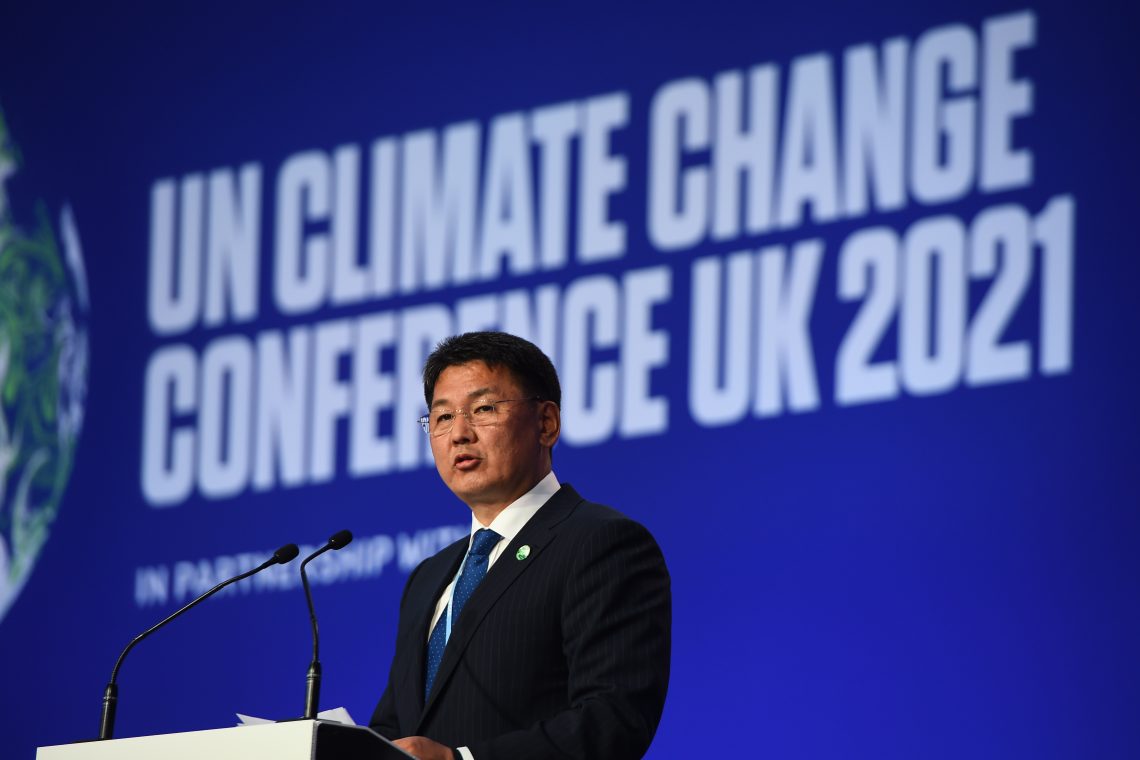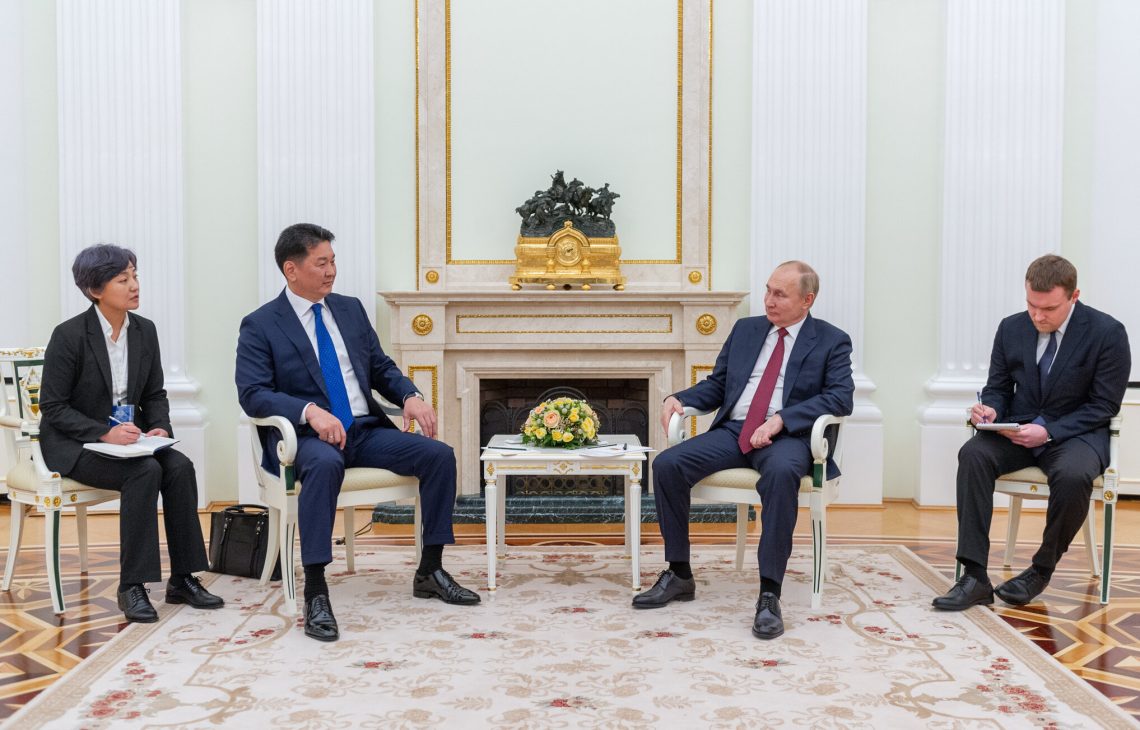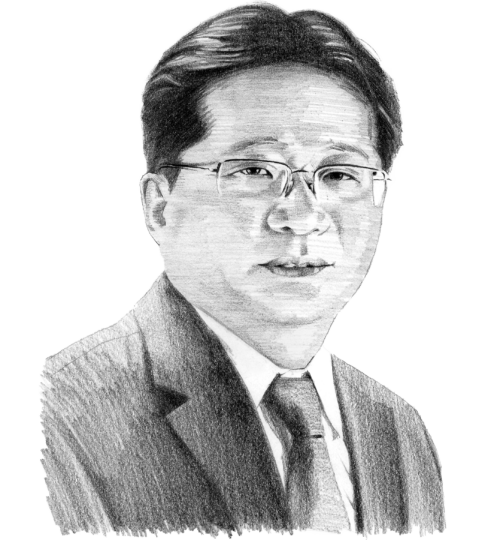Chance for change under Mongolia’s new president
Mongolia’s newly elected president, Ukhnaa Khurelsukh, has little in common with his predecessor Khaltmaagiin Battulga. Untouched by corruption scandals, the new head of state has already demonstrated his willingness to communicate with foreign partners, strengthen Mongolia’s democratic institutions and pursue green policies.

In a nutshell
- The outgoing president attempted to stay in power
- Still, free and democratic elections were held
- The new president could bring about lasting change
On June 9, 2021, Mongolia elected its sixth president since the adoption of a democratic electoral system with the 1992 constitution. Ukhnaa Khurelsukh, a candidate from the Mongolian People’s Party (MPP), won the election with 67.8 percent. The other two candidates from the main opposition Democratic Party (DP) and the National Labor Party (NLP) received 6 percent and 20.3 percent respectively.
The election was recognized as free and fair by major players on the international scene. The Russian and Chinese leaders, the only two immediate geographic neighbors of Mongolia, personally called the new president to congratulate him. United States Secretary of State Antony Blinken congratulated “the people and the government of Mongolia for their successful presidential election” two days later and stated that “we commend Mongolia for its commitment to democracy, and we are proud to be Mongolia’s Third Neighbor and strategic partner.” The Organization for Security and Cooperation in Europe, which was invited to observe the proceedings, concluded that the elections were “administered efficiently and transparently.”
Attack on democracy
The amended constitution of 2019 allows for only one six-year presidential term. Previously, presidents were eligible for two four-year terms. The outgoing President Khaltmaagiin Battulga argued in the Constitutional Court that he was eligible for a second term, despite having himself approved the constitutional amendments in November 2019. In April 2021, the court ruled that no previous president, including the one in power, could be reelected.
President Ukhnaa Khurelsukh’s convincing victory was the result of both his own popularity and the weakness of his opponents.
Then President Khaltmaagiin Battulga responded with a decree banning the Mongolian People’s Party, which had a supermajority in the parliament after the 2016 election, effectively attempting to overthrow the constitutional order and impose his own one-man rule. Immediately after making this announcement, Mr. Battulga visited the headquarters of the armed forces – leading The Economist to describe the situation as “the stuff of tin-pot dictatorships.” These actions hint at what could have happened during a second term under Mr. Battulga, who was also accused of jailing many of his political opponents. Nevertheless, Mongolian democracy withstood this assault on its institutions and the elections went ahead.
Weak opposition
President Ukhnaa Khurelsukh’s convincing victory was the result of both his own popularity and the weakness of his opponents. In the June 2020 parliamentary elections, his party had won a constitutional majority, the first time in the three decades of Mongolia’s post-reform era that an incumbent party won parliamentary elections. The MPP campaign revolved around then Prime Minister Khurelsukh’s charismatic personality, as well as the improved economic performance after the dismal performance of DP governments (2012-2016). The government’s successful handling of Covid-19 contributed. Back then, Mongolia was one of the very few countries around the world to close its borders, keeping the virus at bay. Furthermore, a visible reduction of air pollution in the capital city of Ulaanbaatar, resulting from a ban on raw coal burning and the introduction of subsidized coal briquettes, also played a crucial role in the MPP’s electoral success.
In addition to his successful prime ministership, Mr. Khurelsukh’s image appealed to most voters. The son of a truck driver, he first chose a career in the military before entering politics. Elected four times as a member of parliament, he served as a minister twice, was deputy prime minister two times, and was also secretary general of the MPP. Together with the then chairman of the party Mr. Sukhbaatar Batbold, in 2010 he, as secretary general, led the initiative to revert the party’s original name, the Mongolian People’s Party, dating back to its founding in 1921. Eliminating the word “revolutionary” from the name, added in 1924 on the instructions of the Comintern, symbolized the completion of the transition to the social-democratic values of the MPP. Unlike many other Mongolian politicians, Mr. Khurelsukh was not implicated in corruption scandals.

The DP was in total disarray following two crushing defeats in the 2016 and 2020 parliamentary elections. Former President Battulga, who was nominated by the DP and whose office appoints judges and heads of the anti-corruption agency, was accused of jailing political opponents, including major DP figures who opposed his power grab inside the party. Because of this struggle, by the time of the 2021 presidential elections, the DP was split into two, with two chairmen, two governing bodies and two candidates both disputing the other’s legitimacy.
A judge finally ruled that Sodmonzundui Erdene – who was in the faction opposing the ruling president – was the only legally eligible candidate. Mr. Battulga’s proxies refused to cooperate, denying him the support of many regional party branches. Mr. Erdene came last in the election mostly because of this internal struggle, but also because of his deeply compromised image.
The third-party NLP candidate, Dangaasuren Enkhbat, received almost four times as many votes as Mr. Erdene. This was attributed to both DP voters abandoning ship, as well as a growing number of voters turning away from the two major parties, but he still had a smaller percentage of votes than the previous third-party candidate in the 2017 presidential election. His supporters came mainly from urban areas, mostly young and educated voters. Such results signal an existing demand for third-party alternatives, although at the moment the two major grassroots parties still dominate the political scene.
Major policy outlines
The Khurelsukh presidency kicked off with a restoration of more traditional foreign policy protocols. Former President Battulga did not bother attending the United Nations General Assembly and even publicly expressed his disdain for “diplomatic niceties.” President Khurelsukh made a point of making his initial in-person foreign trips to the United Nations General Assembly and the United Nations Climate Change Summit. These trips bring back the foreign policy which sought to establish Mongolia as an active and responsible member of the international community, which is necessary to enhance national security and attract economic resources.
President Khurelsukh has clearly shown that he wants to oppose politically motivated witch hunts.
Since his election, the president has also taken part in the Vladivostok Far Eastern Economic Forum, hosted by President of Russia Vladimir Putin. On December 16, he met with Mr. Putin in Moscow during an official visit to Russia. Mr. Khurelsukh regularly meets ambassadors of Mongolia’s major partners.
After being neglected by Mr. Battulga, balanced ties are being rebuilt, not only with Mongolia’s two immediate neighbors, Russia and China, but also with the broader international community. The administration has been promoting relations with the so-called Third Neighbors, countries and institutions with which Mongolia shares democratic values and historical and cultural roots, like the U.S., India, Japan, South Korea and the EU, among others. For example, Mongolia recently participated in the Summit for Democracy hosted by President Biden.
Scenarios
The previous head of state often overstepped presidential duties, appropriating the executive powers of the prime minister. This led to meddling in large railroad and industrial projects, and raised corruption and mismanagement concerns. But so far President Khurelsukh is staying clear of such matters. So far, his initiatives focus on judiciary and law enforcement, two areas outlined as presidential powers in the current constitution. He has withdrawn the objection to the formation of the independent General Judiciary Council and Judiciary Disciplinary Committee that Mr. Battulga had filed with the Constitutional Court. The oversight committee is directly elected by the general body of judges and appointed by parliament.
This could mark the beginning of genuine reforms in this area, paving the way for a more independent judiciary – though the outcome is still far from clear and every previous attempt at reform has failed. Since the legislative, executive branches of power are now in the hands of the MPP, if successful the reforms would be a significant legacy for the new president and his party. If the reforms fail again, return to politically motivated persecution of the opposition would condemn Mongolia’s democracy to a slow but inevitable failure.
Two months after the election, President Khurelsukh pardoned former DP Prime Minister Mendsaikhany Enkhsaikhan, widely perceived as having been jailed on false, politically motivated charges because of his rivalry with former President Battulga.
President Khurelsukh has clearly shown that he wants to oppose politically motivated witch hunts. Several cases initiated by Mr. Battulga against his political opponents are still ongoing. For due process to take place, courts will need to prove that the accusations were brought under false pretenses, without the president interfering in the proceedings like his predecessor.
In his previous capacity as prime minister, Mr. Khurelsukh managed to visibly improve air quality in the capital city, which used to be one of the most polluted in the world during the winter months because of coal heating. Now, as president, he announced that one of his top priorities will be combating desertification in Mongolia – a country where nomadic husbandry is not only a part of cultural identity but also a major economic sector.








